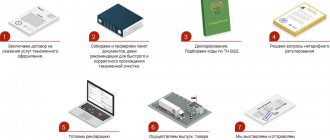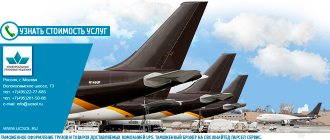HomeCustoms clearancePlaces of clearanceCountries Belarus
The Republic of Belarus (RB) is one of the founding countries of the Customs Union. The Customs Union is an interstate association whose goal is to create a common market on the territory of 5 participating countries: the Republic of Armenia, the Republic of Belarus, the Republic of Kazakhstan, the Republic of Kyrgyzstan and the Russian Federation. The CU member countries made a joint decision on duty-free movement of cargo and goods across their territory.
According to the current interstate agreement, goods produced in the member countries of the Customs Union can move freely throughout the territory of the union and be sold duty-free in any city. Therefore, there is no need for customs clearance of Belarusian goods on the territory of the Russian Federation. Neither the declarant, nor the buyer, nor the owner of the cargo is obliged to carry out customs clearance of such goods and does not have to pay customs duties, fees and taxes. Also, if the imported goods have been cleared through customs in the Republic of Belarus, then they no longer need to be cleared through customs in the Russian Federation. The main feature is only restrictions - a ban on the import of goods originating from countries included in the sanctions lists of the government of the Russian Federation. When purchasing goods from the Republic of Belarus by a legal entity of the Russian Federation, according to intergovernmental agreements, the seller must sell the goods without VAT, and the buyer must charge local VAT when importing goods into the Russian Federation.
Our company “Universal Cargo Solutions” provides services for customs clearance of goods delivered from abroad. We will help you prepare the necessary package of documents for customs clearance of cargo and goods, calculate customs duties, fill out and submit a customs declaration, and, if necessary, perform a preliminary inspection or customs inspection of cargo arriving from abroad.
We work with any participants in foreign trade activities:
- Individuals
- Legal entities
- Individual entrepreneurs
Customs declarants carry out professional customs clearance of goods and cargo in any customs procedures (regimes): import (release for domestic consumption), export, customs transit and others. We accept and release various types of cargo:
- General
- Prefabricated
- Perishable
- Dangerous
- Container
- Bulk
- Large
- Oversized
- Heavyweight
- Live animals
- and others.
Customs clearance in the Republic of Belarus
Does our company carry out customs clearance of goods in Belarus?
If necessary, we have the opportunity to carry out customs clearance in the Republic of Belarus - the Republic of Belarus. After which these goods can be officially imported into the Russian Federation, with the exception of sanctions.
Also, when sending or selling Russian goods to the Republic of Belarus, customs clearance of goods is not required, although there are exceptions when goods of group 27 of the EAEU customs code require export registration from the Russian Federation to the Republic of Belarus.
How to conclude a contract with a supplier from Belarus
The first step in organizing imports is signing an agreement with the supplier. Write down important points in the contract with the Belarusian side.
Limit amount of the contract. The amount of supplies under one contract should be limited to a maximum amount. If your contract is for more than one delivery, then all shipments must not exceed the amount specified in the contract.
Selecting the contract currency. The currency legislation of the Republic of Belarus allows settlements in Belarusian rubles and foreign currency. To use Russian rubles as a contract currency, an official exchange rate must be established. To make payments with a Belarusian supplier, you will need a foreign currency account, even if you pay in Russian rubles.
Payment terms. Payment terms for the delivery of goods from Belarus usually do not exceed 90 days. This is prescribed by Decree of the President of the Republic of Belarus No. 178, according to which the Belarusian supplier must transfer to his account the cost of goods sold within 90 days from the date of shipment of the products. He will be fined for violating the rules.
To compensate themselves for the fine, Belarusians include in the contract a penalty clause for late payment. It can significantly exceed the amount of penalties facing the supplier - up to 2% of the amount of the foreign trade transaction for each day of delay, but not more than the amount of the transaction. Check the proportionality of the penalty proposed by the Belarusian side.
If you do not have time to pay, then take care in advance of the National Bank’s permission to defer payment on the transaction.
Keep records of exports and imports using the simplified tax system in the Kontur.Accounting web service. Currency accounting and work instructions, taxes, automatic salary calculation and reporting in one service Get free access for 14 days
Customs clearance from Russia to the Republic of Belarus for goods of group 27
Our company’s specialists carry out prompt customs clearance of cargo and goods of customs group 27 sent from Russia to the Republic of Belarus (RB) (2701, 2702, 2703, 2704, 2705, 2706, 2708, 2709, 2710, 2711, 2712, 2713, 2714, 2715, 2716): coal, oil and oil products, petroleum waxes, gases and paraffins, coke, bitumen, asphalt, bituminous and oil shale and sandstones. And many other goods subject to customs clearance from the Russian Federation to the Republic of Belarus. The processing time for an export customs declaration is several hours at the lowest price on the market!
Delivery methods and terms
When dealing with the question of how to clear customs cargo from Ukraine to Russia or customs clear a car from Ukraine to Russia, you should familiarize yourself with the methods of its delivery. The countries are located in close proximity, so transportation problems never arise. They can be realized by all types of transport:
- automobile;
- railway;
- air;
- sea
Customs clearance of goods from Ukraine to Russia is carried out in the same way when following any route. Transportation by rail is cheaper, but takes longer. In time it can reach a period of a week. Motor transport is relevant when constructing a travel trajectory on good roads. It is useful for planning door-to-door delivery, but the quality of roads in countries can complicate the operation.
If the customer is focused on the speed of delivery, or it is necessary to transfer valuable goods or those requiring special storage conditions, then the best solution would be air transport, which is also suitable for delivering documents from Ukraine to Russia, of course, if they are urgent. With its help, the service will be provided in a few hours. Transportation by sea is used if the cities of the supplier and the sender are located near the coast, but the difficult political situation between states in some cases makes such transportation impossible.
Stages of customs clearance of cargo and goods in Belarus
- Placing goods in a temporary storage warehouse for customs clearance (for import);
- Submitting a customs declaration (CD) to the customs authority;
- Payment of customs duties;
- Study by the customs inspector of the received customs declaration;
- If necessary, conducting inspection or observation of the declared goods;
- Release of goods according to the declared procedure.
Benefits of working with us
- We work 7 days a week 365 days a year
- Highly qualified specialists with extensive experience
- We bear full responsibility for the clearance of goods at customs
- We process any goods at any customs in Russia
VAT on imports from EAEU countries
There is no customs clearance between Belarus and Russia; it is of a notification nature. There are no fees for crossing the border, and the procedure for paying VAT is radically different.
VAT for imports from Belarus will have to be paid to you and will be administered by the Russian tax authority. That is, you will not pay VAT to the Belarusian supplier as part of the cost of the goods or to customs, as when importing from other countries, but transfer it directly to the budget of the Russian Federation.
Your tax system is not important; importers under special regimes are also required to pay import VAT. The place where the supplier of the goods is registered and the type of contract also do not matter. You pay VAT when:
- ownership passes to you on the territory of Belarus or the territory of Russia;
- you receive goods from the supplier through a commission agent, attorney or agent;
- you buy goods from a Belarusian supplier, and they are shipped through Kazakhstan;
- if the supply agreement is concluded with a supplier not from the EAEU, and the goods are shipped from the territory of Belarus to Russia.
That is, regardless of the country of origin, you pay VAT when importing goods from Belarus.
Exemption from import VAT is received by:
- goods listed in Article 149 of the Tax Code of the Russian Federation, 150 of the Tax Code of the Russian Federation and Decree of the Government of the Russian Federation dated April 30, 2009 No. 372;
- goods transferred under an agreement between Russian organizations;
- when transferring goods within one organization;
- when transferring goods in a free customs zone.
Keep records of exports and imports using the simplified tax system in the Kontur.Accounting web service. Currency accounting and work instructions, taxes, automatic salary calculation and reporting in one service Get free access for 14 days
When importing goods from Belarus and EAEU countries, you will have to calculate the tax amount yourself, although customs officers do this for imports from third countries.
Tax rates are standard - 20% and 10%. The 10% rate applies to goods included in the list of clause 2 of Art. 164 Tax Code of the Russian Federation.
The tax base for VAT is determined on the date of acceptance of imported goods for registration by the taxpayer. The base itself is calculated based on the cost of the goods under the contract. When purchasing for Belarusian rubles, the cost in Russian rubles is determined by recalculating the cost in foreign currency to the ruble exchange rate according to the Central Bank on the date the goods were accepted for accounting.
Pay VAT to the tax office by the 20th day of the month following the acceptance of imported goods for accounting. If you have overpaid federal taxes, then you don’t have to remit VAT; to do this, submit a request for this to the tax office.
In the payment order, indicate KBK - 182 1 04 01000 01 1000 110.
Documents determining the date of arrival
Clause 2, Part 1, Art. 2 of the Agreement dated 06/18/2010 explains that the date of arrival (relocation) of an individual for permanent residence in a member state of the Customs Union is the date of issuance of a document confirming receipt of the status of a refugee, forced migrant, or recognition of the person as having arrived (resettled) to a permanent place residence in a member state of the Customs Union in accordance with the legislation of that state.
That is, in order to receive a customs benefit, you must be recognized as having arrived (settled) for permanent residence. Article 6 of the Law of the Russian Federation of June 25, 1993 N 5242-1 “On the right of citizens of the Russian Federation to freedom of movement, choice of place of stay and residence within the Russian Federation” stipulates that a citizen of the Russian Federation who has changed his place of residence is obliged no later than 7 days from the date upon arrival at a new place of residence, contact the official responsible for registration with an application in the prescribed form. The registration authority is obliged to register a citizen at the place of residence no later than 3 days from the date of presentation of documents (submitting an application and documents in the form of electronic documents) for registration.
If a person moving to a permanent place of residence does not have citizenship of the Russian Federation, then the date of recognition of him as having moved to a permanent place of residence will be the date of receipt of a residence permit (paragraph 7, 11 clause 1 of article 2 of the Federal Law of July 25, 2002 N 115-FZ “On the legal status of foreign citizens in the Russian Federation”).
To summarize what has been said, we note that the date from which the migrant has the right to import personal belongings without paying customs duties is:
— for citizens of the Russian Federation — the date of receipt of permanent registration at the place of residence;
— for foreign citizens — the date of receipt of a residence permit in the Russian Federation;
— for migrants from the Kyrgyz Republic who have permission to move, the date of receipt of permission to move.
The period of 18 months for duty-free import of personal belongings is restrictive and cannot be restored even if there are good reasons for missing it.
What a migrant needs to know
Customs regulation in accordance with Art. 1 of the Customs Code of the Customs Union (TC CU) is the legal regulation of relations associated with the movement of goods across the customs border of the Customs Union. Thus, persons moving to the Russian Federation and importing personal belongings from the territories of the Republic of Kazakhstan and the Republic of Belarus do not enter into customs legal relations. By persons moving to a permanent place of residence in a member state of the Customs Union, it is necessary to mean only persons arriving in the customs territory of the Customs Union and, in connection with this, crossing the customs border of the Customs Union. The current customs legislation of the Customs Union and the legislation of the Russian Federation on customs provide the opportunity to receive customs benefits in the form of complete exemption from customs duties and taxes in relation to personal belongings imported by persons moving to a permanent place of residence in the Russian Federation.
Features associated with the performance of customs operations in relation to goods for personal use are determined by Chapter 49 of the Customs Code of the Customs Union, and in the part not regulated by this chapter, by the Agreement dated June 18, 2010 between the governments of the Republic of Belarus, the Republic of Kazakhstan and the Russian Federation “On the procedure for the movement of individuals persons of goods for personal use across the customs border of the Customs Union and performing customs operations related to their release" (hereinafter referred to as the Agreement dated June 18, 2010). The agreement dated June 18, 2010 determines the procedure for the movement by individuals across the customs border of the Customs Union of goods for personal use, including vehicles, and the performance of customs operations related to their release.
Appendix No. 3 to the Agreement dated June 18, 2010 contains a list of goods for personal use transported across the customs border with exemption from customs duties. Clause 8 of this Appendix establishes that used goods for personal use, imported by individuals recognized in accordance with the legislation of a member state of the Customs Union as refugees, forced migrants, as well as those arriving (resettled) in a member state of the Customs Union for permanent residence , has the right to import goods for personal use with exemption from customs duties, regardless of the customs value and weight of such goods, subject to the simultaneous fulfillment of the following conditions:
— the import of goods for personal use into the customs territory of the Customs Union from the country of previous residence is carried out no later than 18 months from the date of arrival of the specified person for permanent residence in a member state of the Customs Union;
- such goods were purchased before the date of recognition of individuals in accordance with the legislation of a member state of the Customs Union as refugees, forced migrants, or before the date of arrival (resettlement) for permanent residence in a member state of the Customs Union.
As for a car, duty-free import is possible only for one car and one trailer no later than 18 months from the date of arrival of the specified person for permanent residence in a member state of the Customs Union, provided that the car and trailer were owned by the immigrant for at least 6 years months before the date of arrival at permanent residence.










